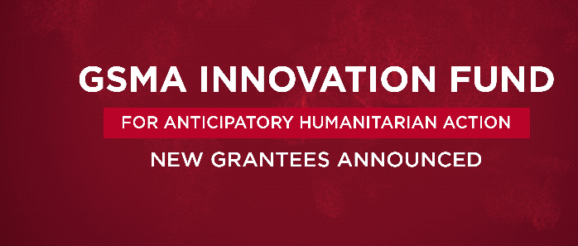GSMA Innovation Fund: Kenyan Firms Among 8 Global Organizations Selected in Cohort

The latest cohort of organizations participating in the GSMA Innovation Fund for Anticipatory Humanitarian Action has been announced. This year’s Cohort has 8 successful companies selected out of a total of 143 eligible applications received. Selected companies had requested a total of £25 million ( KES 4.7 billion) in funding. So far, £16.4 million (KES 3.09 billion) has been secured by the applicants. Launched on November 24 th , 2022, by the GSMA and the UK Foreign, Commonwealth, and Development Office (FCDO), this fund is dedicated to supporting solutions that leverage mobile digital technology to anticipate potential humanitarian impacts and facilitate effective early responses. Emphasizing the crucial theme of anticipatory action, the fund aims to minimize humanitarian impacts and enhance preparedness in the face of crises. Notably, 65% of applications originated from Africa, with an additional 22% from South and South East Asia. Of the applicants, 58% were not-for-profit organizations, predominantly concentrating on early action, preparedness, and resilience building. Majority of the pitches (62%) were on climate change. Kenya’s Agri-tech company, Synnefa has made the final list of 8. TAHMO is the other Kenyan-based firm to make the list. The meteorological firm has operations across the continent of Africa. GSMA Innovation Fund Successful Applicants GSMA Innovation Fund Successful Applicants
ActionAid Cambodia : Focused on early action, preparedness, and resilience building by utilizing mobile technology data to depict the movement of people. Buraq: Upgrading existing weather monitoring systems and deploying new automated weather monitoring systems in flood-prone areas of Gilgit Baltistan in Pakistan to enable accurate weather forecasting and early warning systems. People in Need: Developing a monitoring system based on IoT and connected sensors that integrates with government tools and disseminate flood warnings via mobile phones directly to the impacted population. NAXA: Developing and scaling a disaster management platform, “DASTAA,” in flood-prone wards of the Mahakali basin to enhance anticipatory actions and reduce disaster impacts at the household level. Rumsan: Aiming to build and pilot a multi-signature-based anticipatory action program in an existing mobile technology cash and voucher assistance (CVA) platform. Synnefa : Integrating satellite imagery into their farm management platform, FarmCloud, to provide real-time data on crop health and weather patterns to smallholder farmers in Kenya. TAHMO : Aiming to establish a cost-effective early warning flood system by repurposing existing mobile technology, including the use of commercial microwave links. Tearfund: Using mobile technology to raise awareness of insurance benefits and providing agropastoralists facing climate change-related shocks with access to timely climate information and simple, parametric cover for extreme climate events. GSMA Cohort Activities GSMA Cohort Activities
Throughout the grant period, the GSMA will provide a comprehensive range of support activities. This includes offering expertise on the application of digital tools in the humanitarian space, facilitating networking opportunities with other GSMA Innovation Fund grantees, and delivering technical support in areas such as human-centred design and mobile network operator engagement. The GSMA will also ensure ongoing project effectiveness through monitoring, evaluation, and learning assistance, along with financial reporting support. In addition to these critical support functions, the GSMA will actively facilitate relationships between the funded organizations and key stakeholders, such as mobile operators and humanitarian organizations. Furthermore, the GSMA will elevate the visibility of grantees by profiling their innovative work in GSMA publications and featuring them in industry-leading events.
